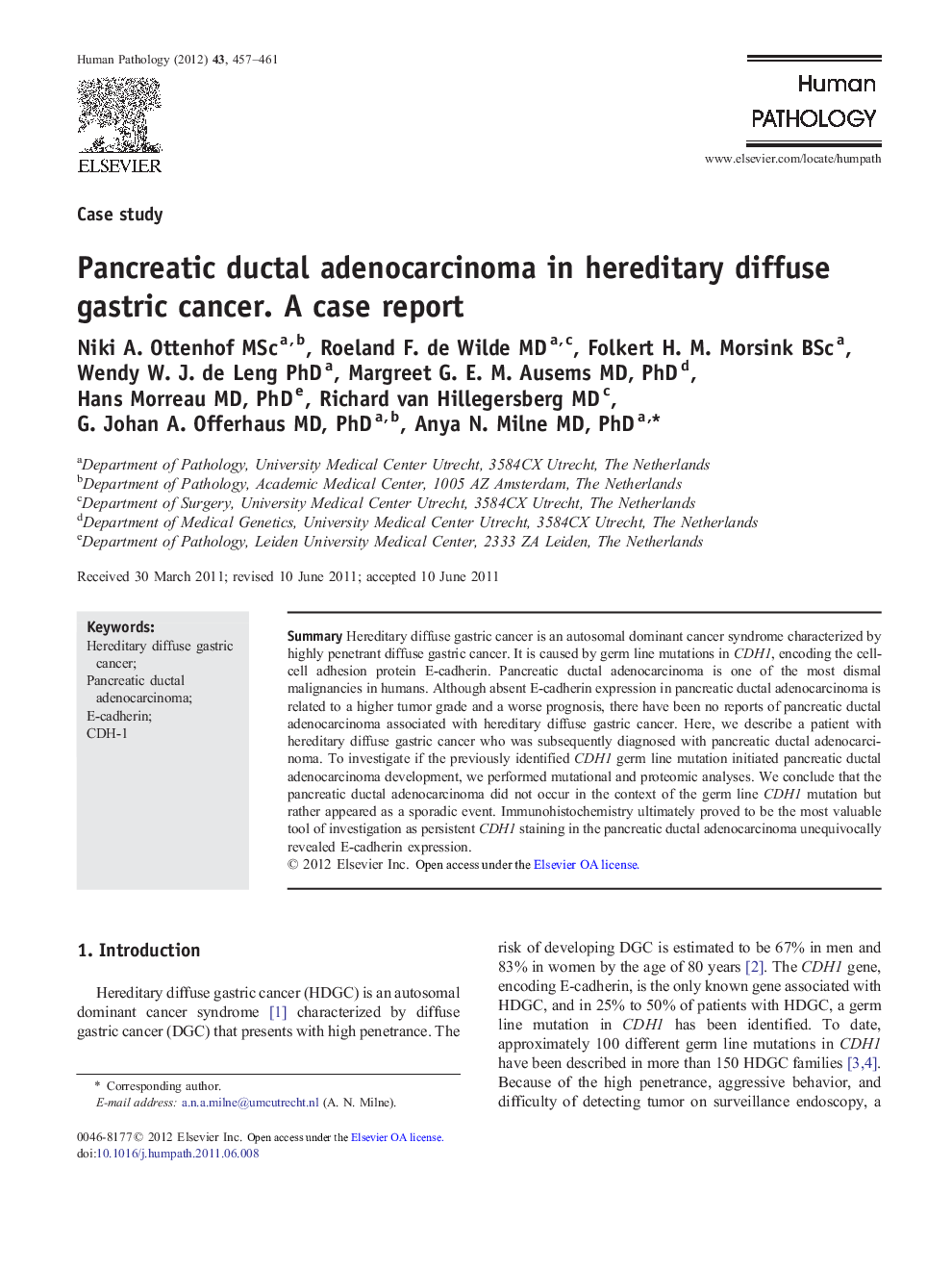| Article ID | Journal | Published Year | Pages | File Type |
|---|---|---|---|---|
| 6216281 | Human Pathology | 2012 | 5 Pages |
SummaryHereditary diffuse gastric cancer is an autosomal dominant cancer syndrome characterized by highly penetrant diffuse gastric cancer. It is caused by germ line mutations in CDH1, encoding the cell-cell adhesion protein E-cadherin. Pancreatic ductal adenocarcinoma is one of the most dismal malignancies in humans. Although absent E-cadherin expression in pancreatic ductal adenocarcinoma is related to a higher tumor grade and a worse prognosis, there have been no reports of pancreatic ductal adenocarcinoma associated with hereditary diffuse gastric cancer. Here, we describe a patient with hereditary diffuse gastric cancer who was subsequently diagnosed with pancreatic ductal adenocarcinoma. To investigate if the previously identified CDH1 germ line mutation initiated pancreatic ductal adenocarcinoma development, we performed mutational and proteomic analyses. We conclude that the pancreatic ductal adenocarcinoma did not occur in the context of the germ line CDH1 mutation but rather appeared as a sporadic event. Immunohistochemistry ultimately proved to be the most valuable tool of investigation as persistent CDH1 staining in the pancreatic ductal adenocarcinoma unequivocally revealed E-cadherin expression.
